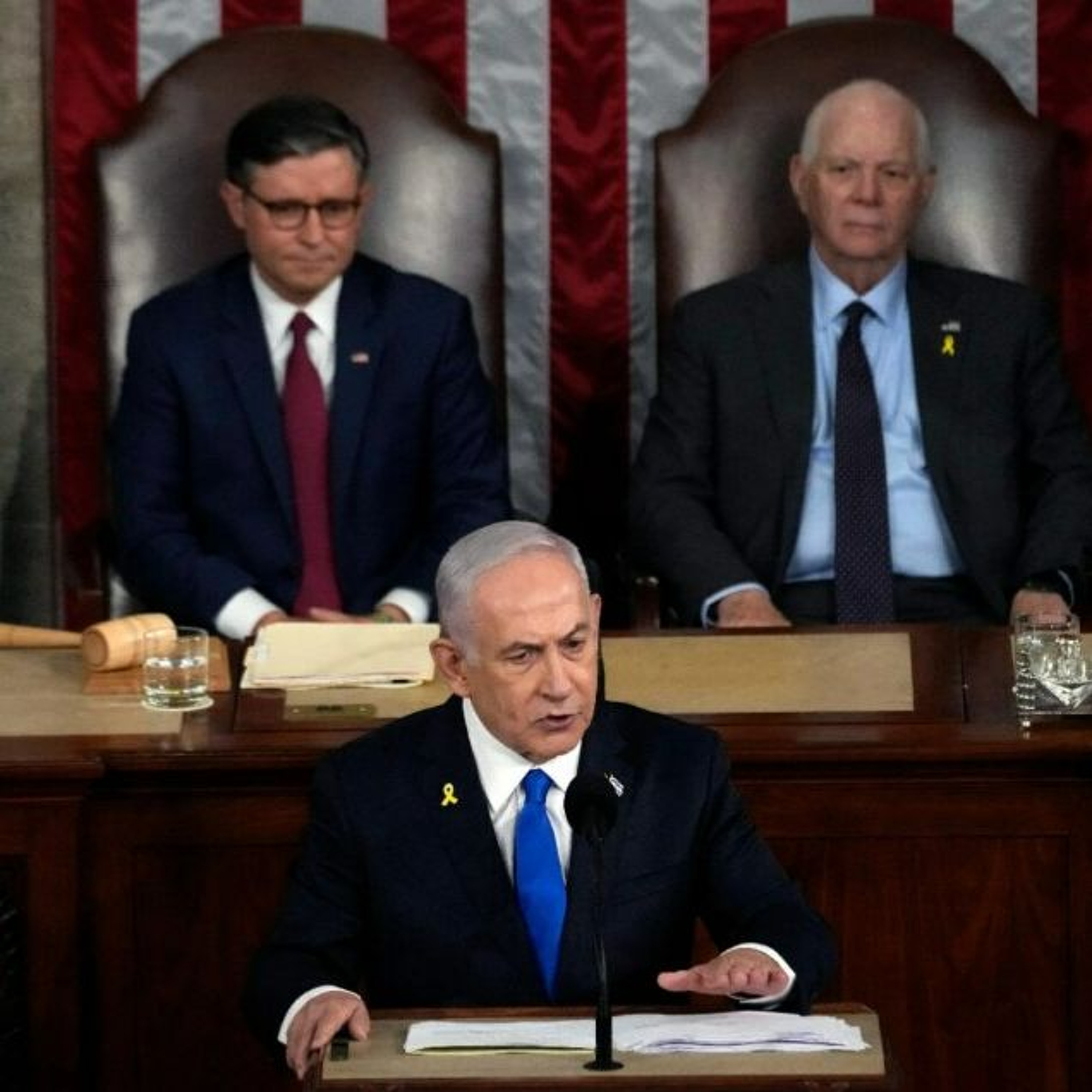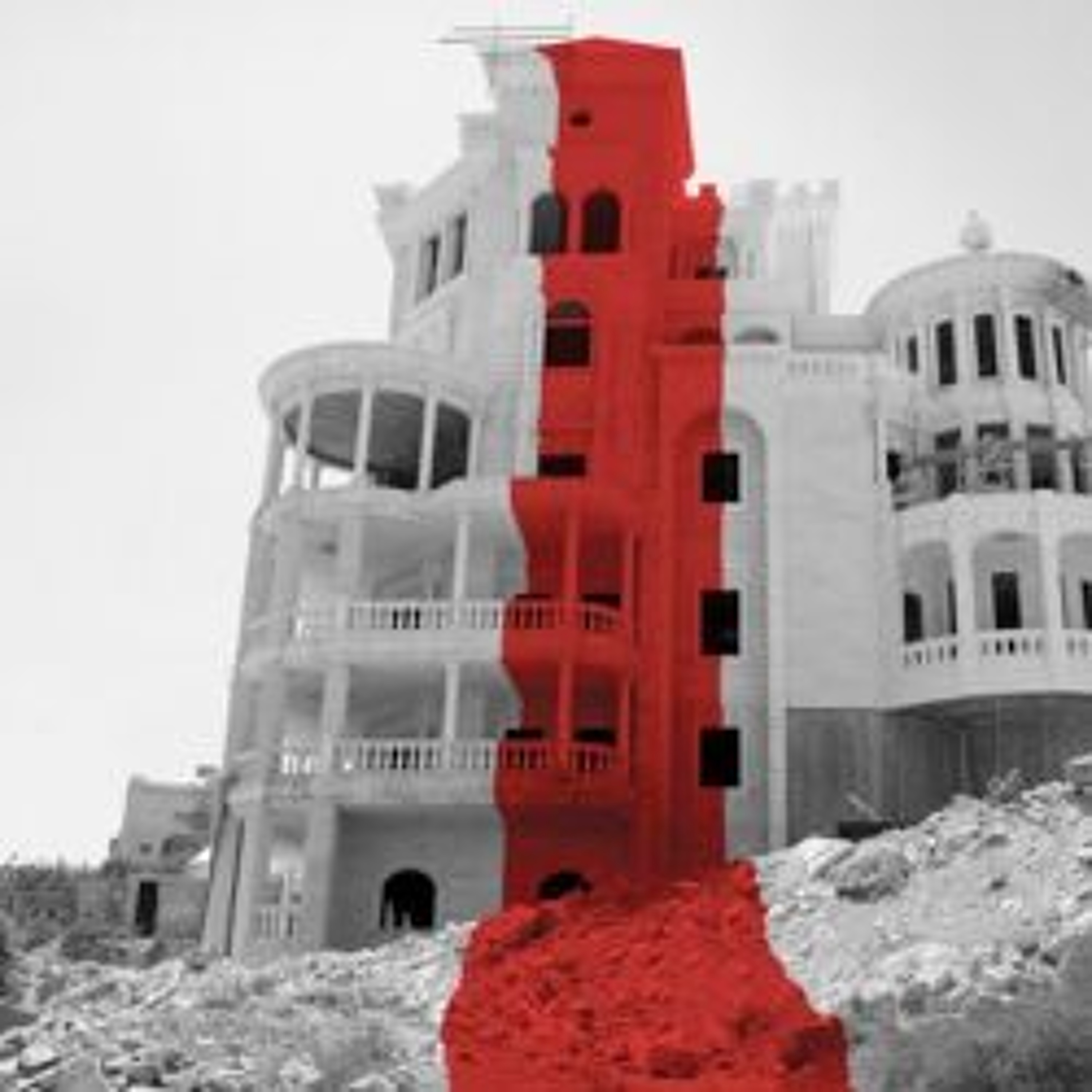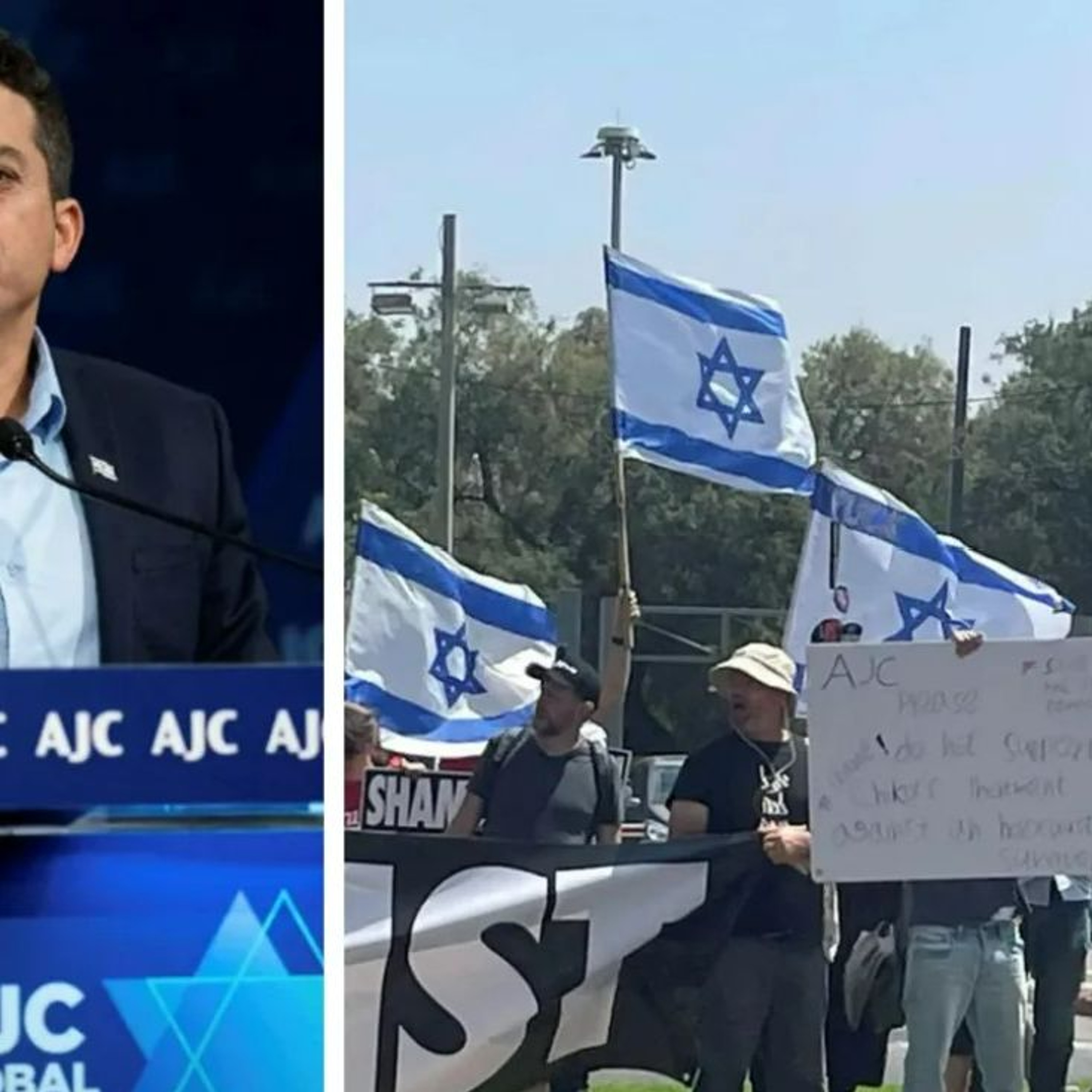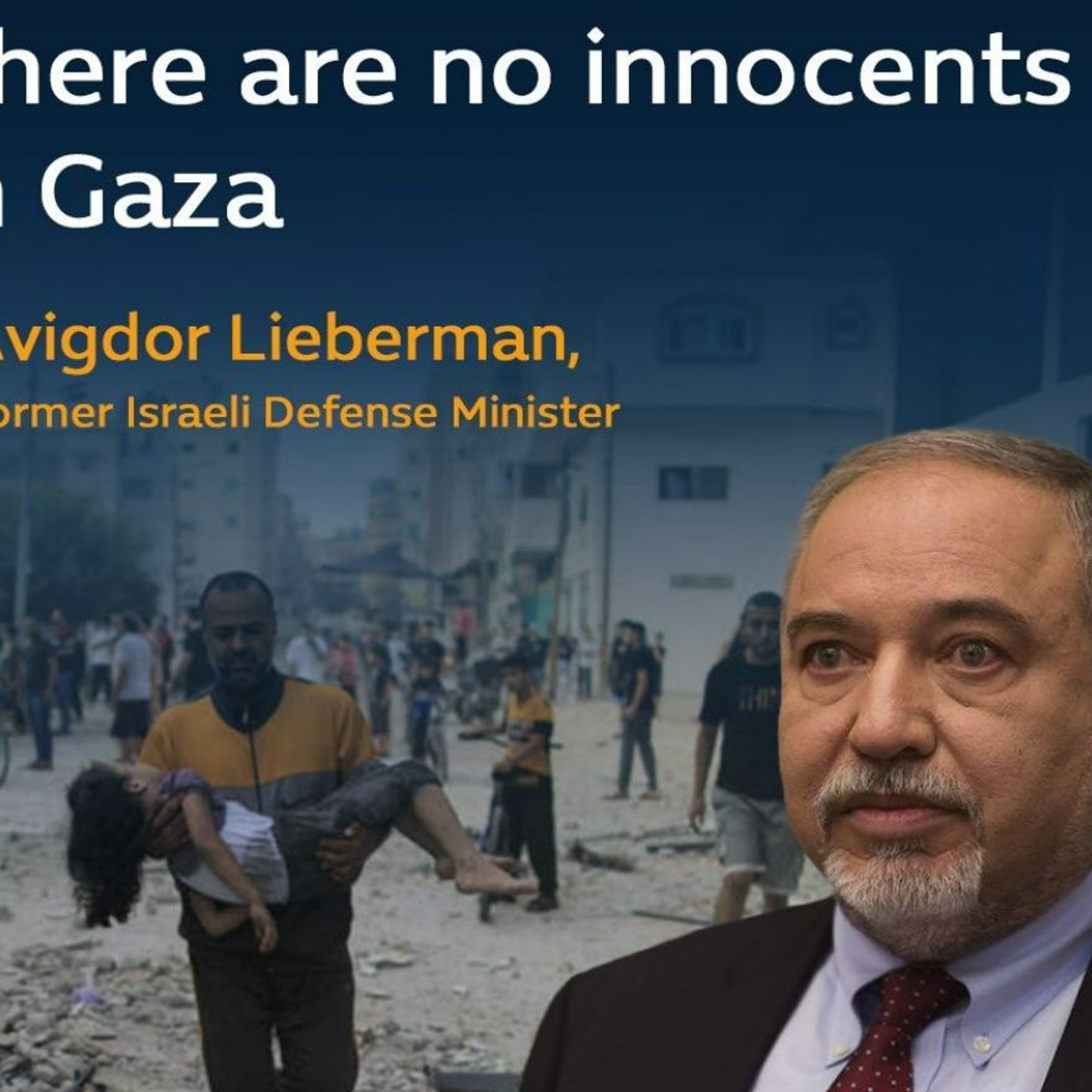Discover The Turbulent World with James M. Dorsey
The Turbulent World with James M. Dorsey

The Turbulent World with James M. Dorsey
Author: James M. Dorsey
Subscribed: 39Played: 2,278Subscribe
Share
© All rights reserved
Description
Dr. James M. Dorsey is a senior fellow at the S. Rajaratnam School of International Studies, co-director of the University of Würzburg’s Institute for Fan Culture, and co-host of the New Books in Middle Eastern Studies podcast. James is the author of The Turbulent World of Middle East Soccer blog, a book with the same title as well as Comparative Political Transitions between Southeast Asia and the Middle East and North Africa, co-authored with Dr. Teresita Cruz-Del Rosario and Shifting Sands, Essays on Sports and Politics in the Middle East and North Africa.
689 Episodes
Reverse
US presidential candidates Kamal Harris and Donald J. Trump are at each other’s throats, but there is one thing they agree on: The Gaza war must end.
It’s the one kind of agreement Israeli Prime Minister Binyamin Netanyahu didn’t want to hear within 24 hours of his address to the US Congress that was choreographed to project unbridled support for the Gaza war.
On this edition of Parallax Views, James M. Dorsey, whose commentaries can be read at his Turbulent World w/ James M. Dorsey Substack, give one of his regular visits to discuss the latest in regard to the Middle East and Israel/Palestine. This time we examine Israeli Prime Minister's visit to Washington D.C. where he gave a speech to Congress that received multiple standing ovations despite the heavy criticisms Netanyahu has come under for both how the war in Gaza has been conducted and the safety of hostages. Pro-Palestinian activist and hostages' families alike protested Netanyahu's visit. We'll discuss all of that as well as James's upcoming book The Battle for the Soul of Islam, the two-state vs. one-state solution, his views on the Confederation solution to the Israeli-Palestinian conflict (and why he believes it looks good on paper, but has obstacles), the calculus of Netanyahu's speech to Congress, what a second Trump term may mean for Israel, the Israeli far-right, the settler movement, land swaps in relation to solutions to the Israeli-Palestinian conflict, presumptive Democratic Presidential candidate/current Vice President Kamala Harris and her rhetoric on Gaza, and much, much more.
Israel’s Prime Minister Benjamin Netanyahu on Wednesday (Jul 24) addressed a United States Congress divided by the ongoing war in Gaza, as he attempted to drum up continued support for his country’s military campaign. James M. Dorsey, adjunct senior fellow at the S Rajaratnam School of International Studies, gives Radio his assessment of Netanyahu’s speech and policies
Gulf investment in European soccer threatens to become a hot potato.
Israeli Prime Minister Binyamin Netanyahu’s government is mulling a proposal for the post-war administration of Gaza that would put the battle to define moderate Islam in the 21st century on the front burner of Middle Eastern politics and allow the United Arab Emirates and Saudi Arabia to export their autocratic notion of ‘moderate’ Islam.
This year, Israeli Diaspora Affairs Minister Amichai Chikli hit the road.
Not to shore up Diaspora Jewish support for Israel’s war on Gaza or reassure Jews concerned about rising anti-Semitism but to forge closer ties to the global far-right tainted by its anti-Semitic roots.
Israel’s self-declared safe zones trap the Jewish state in the contradictions of its nine-month-long failed campaign to destroy Hamas. It’s one and one is two that Hamas operatives seek cover in such zones.
An Israeli attack on the south of the Gaza Strip on Saturday killed dozens of people according to the health ministry in Gaza, while an Israeli official said the offensive targeted the head of Hamas' military wing Mohammad Daif according to the Israelis.
The coming days and weeks will clarify whether the Biden administration has succeeded in bridging the yawning gap that has dogged the ceasefire efforts for months or whether Mr. Netanyahu and Hamas are going through the motions to ensure that the other gets the blame if renewed talks fail.
Subscribe to jamesmdorsey.substack.com for more updates.
https://jamesmdorsey.substack.com
The past few decades—since 9/11 in particular—have seen the increasing prominence of ‘moderate Islam’ in the public sphere. But who gets to define what this term means? How are these different definitions projected to wider Muslim, and non-Muslim, audiences? And what are the political implications of these varied versions of ‘moderate Islam,’ whether locally or internationally?
Imagine Gaza if Israel were to agree today to a permanent ceasefire and a complete troop withdrawal from the Strip. One of two things would happen: Hamas would return to power and/or continued anarchy in the absence of a credible post-war administration of the territory.
A one-time revolutionary Egyptian force, the storied Egyptian soccer club Al Ahly FC is today the latest Emirati trophy in regional competition between Saudi Arabia and the United Arab Emirates and a potential symbol of Egyptian crony capitalism.
There’s a silver lining for Egypt in the Gaza war.
Egyptian general-turned-president Abdel Fattah Al-Sisi, much like his predecessors, would like the Israeli-Palestinian conflict to be a lightning rod that distracts from mounting frustration and anger at his regime.
To be sure, Mr. Al-Sisi has to tread carefully.
For much of the last decade, discussion of soccer among ultra-conservative Muslims faded into the background while Islamic militants appeared to set their sights elsewhere. That could change with the current European football championship and next month’s Paris Olympics. For now, the Gaza war’s mobilizing effect will likely primarily manifest itself in pro-Palestinian protests rather than violent attacks.
Israeli Prime Minister Binyamin Netanyahu’s refusal to end the Gaza war is about much more than avoiding a reckoning that could end his political life and potentially land him in prison.
Even by Israeli standards, Uri Tzafon (Awaken North) is a far-right fringe group.
Amid mounting tension with Lebanese Shiite political group and militia, Hezbollah, along the Lebanon-Israel border, Uri Tzafon is calling for Israeli settlement of southern Lebanon.
The Dahiya doctrine that mandates the destruction of infrastructure, images of Gaza’s devastation, IDF soldiers’ social media postings, and inflammatory statements by officials, politicians, religious figures, and pundits call into question Israeli assertions that its military is among the world’s “most moral.”
Israeli military triumphs and exploits often produce battlefield victories that fail to garner political gains.
The Gaza war has changed that paradigm.
A former Israeli hostage negotiator suggests Hamas may be willing to shift the paradigm in Gaza ceasefire negotiations.
Gaza is not one but multiple wars.
Beyond the horrors of the kinetic war in the Strip, Israel, the Palestinians, Qatar, the United Arab Emirates, Iran, and multiple political groups, including pro-Palestinian students, supporters of Israel, and right-wing forces, are waging often inter-connected Gaza-related information wars.
Comments
 United States
United States
























